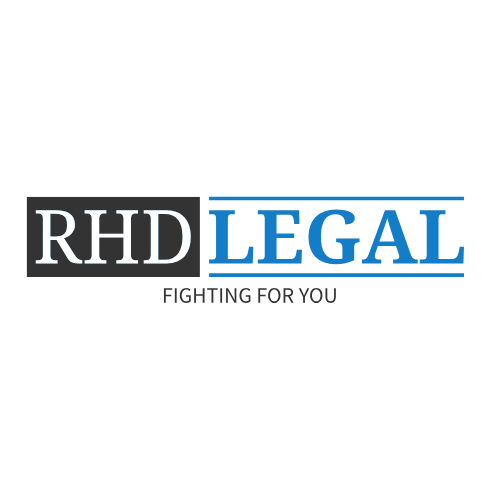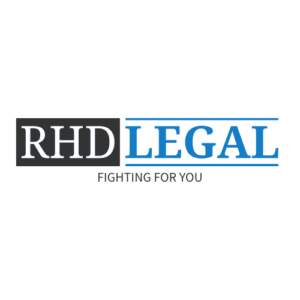A car accident, no matter how minor, can be a stressful and disorienting event. Knowing what to do—and what not to do—immediately after a crash can protect your health, help your insurance claim, and keep you on the right side of the law. Below is a comprehensive guide to the 12 do’s and don’ts following a car accident, with practical advice to guide you through the crucial moments and days afterward.
1. Do: Stay Calm and Check for Injuries
The immediate aftermath of a car accident can be chaotic. Your first priority should always be to stay calm and assess the situation. Panicking can make things worse, so take a deep breath, and focus on checking for injuries.
Steps to Take:
- Check yourself first: Are you injured? Take a moment to assess your physical condition before you attempt to move.
- Check passengers: If there are passengers in your vehicle, ask if they’re okay. Look for any visible signs of injury.
- Check others involved: If it’s safe, check on the occupants of the other vehicle or pedestrians involved.
If anyone is injured, immediately call 911. It’s essential not to move anyone who is seriously hurt, as this could worsen their injuries, especially if there’s potential damage to their neck or back.
Steps to Follow Immediately After a Car Accident
| Steps | Details |
|---|---|
| Stay Calm | Take deep breaths to manage panic and focus on the next steps. |
| Assess Injuries | Check yourself, passengers, and other involved individuals for injuries. |
| Call 911 | Report injuries and request medical assistance if necessary. |
| Don’t Move Injured Persons | Only move them if they are in immediate danger. |
2. Don’t: Leave the Scene
Leaving the scene of an accident is not only illegal in most jurisdictions, but it can also complicate your case if the accident results in a legal dispute. Even if the accident seems minor, it’s crucial to remain on the scene until authorities arrive and you’ve exchanged information with all parties involved.
What to Do Instead:
- Move to a safe area: If the vehicles are causing a traffic hazard and it’s safe to do so, move them out of traffic.
- Turn on hazard lights: This will alert other drivers to the accident and help prevent further collisions.
- Stay put: Remain at the scene until the police have cleared you to leave.
Leaving the scene prematurely could result in fines, legal penalties, or a suspended driver’s license.
3. Do: Call 911 and Report the Accident
Whether it’s a fender-bender or a more serious crash, it’s always a good idea to call 911 to report the accident. In many states, it’s required by law to report any accident that involves injuries or significant property damage.
The police will create an official accident report, which is a key document when filing an insurance claim or pursuing legal action. If the police don’t come to the scene, you may be able to file a report at a local police station or online.
Information to Provide to the Police:
- Your location (street names, intersections, landmarks).
- A factual, step-by-step account of the accident.
- Details about any injuries.
A police report helps establish an objective account of the accident, which can be critical in determining fault.
4. Don’t: Admit Fault or Speculate
In the heat of the moment, you might feel inclined to apologize or admit fault for the accident. However, this could work against you in an insurance claim or legal proceeding. Determining fault is the job of insurance adjusters and law enforcement, so stick to the facts and avoid making any assumptions about what caused the accident.
Things to Avoid Saying:
- “I’m sorry, it was my fault.”
- “I didn’t see you.”
- “I was distracted.”
- “I think I was speeding.”
Instead, provide a factual recount of what happened, and let the investigation reveal who is at fault.
5. Do: Exchange Information with the Other Driver
One of the most important steps after an accident is exchanging information with the other driver. Failing to gather this information can make the insurance claims process much more difficult and may hinder any potential legal action.
What to Collect:
- Driver’s name and contact information: Phone number, address, and email.
- Vehicle information: Make, model, year, and license plate number.
- Insurance details: The name of their insurance provider, policy number, and contact information for their agent.
If there are any witnesses, try to get their contact information as well. Witness statements can play a critical role in resolving disputed cases.
Key Information to Exchange After a Car Accident
| Information | Details |
|---|---|
| Driver’s Name | Full name, contact info (phone, email, address) |
| Vehicle Info | Make, model, year, license plate number |
| Insurance Info | Provider, policy number, agent contact |
| Witness Contact | Names and phone numbers of any witnesses |
6. Don’t: Neglect to Gather Information
Accurate documentation is essential after an accident. Even if the accident seems minor, never leave the scene without gathering the necessary information from the other driver, witnesses, and the accident scene. Skipping this step can leave you vulnerable in the event of an insurance dispute.
Key Information to Collect:
- The other driver’s name, address, and phone number.
- The make, model, and registration number of all vehicles involved.
- Insurance details of all parties involved.
- Contact information for witnesses.
- Photos of vehicle damage and the accident scene.
Being thorough now will make the claims process smoother down the road.
7. Do: Take Photos of the Scene
Photos are critical pieces of evidence. In the heat of the moment, it’s easy to forget minor details, but photos can serve as an accurate representation of what happened at the scene of the accident. Your phone can be your best tool here—use it to document everything from vehicle damage to road conditions.
What to Photograph:
- Vehicle damage: Get shots from multiple angles, capturing all dents, scratches, and broken parts.
- License plates: Make sure to get clear images of both cars’ license plates.
- The surrounding area: Include street signs, skid marks, and traffic signals.
- The drivers and passengers: If possible, document injuries as well.
These photos will help paint a full picture when it comes to insurance claims or legal proceedings.
8. Don’t: Post About the Accident on Social Media
It might feel natural to share the news of an accident with friends and family through social media, but resist the urge. Even innocent comments or pictures can be taken out of context and used against you by the other driver’s insurance company or attorneys. Social media posts could also affect your claim or any legal actions stemming from the accident.
Why You Should Avoid Social Media:
- Insurance companies monitor posts: They can use your posts as evidence to dispute your version of events.
- Legal risks: Anything you post can be used against you in court.
- Misinterpretation: What you say or show can be twisted, even if your intentions were innocent.
Instead of posting, focus on resolving the matter through the proper channels—insurance, police, and legal support. For more information, read our Social Media Impact Article.
9. Do: Seek Medical Attention Immediately
Even if you feel fine right after the accident, it’s critical to seek medical attention. Some injuries may not show symptoms immediately but can cause serious health problems later. Seeing a doctor will not only protect your health but will also document any injuries for your insurance claim.
Common Injuries to Look Out For:
- Whiplash: A neck injury caused by sudden, forceful movement.
- Concussion: Even mild head trauma can have long-lasting effects.
- Back injuries: Pain in the back may not be immediately noticeable but can worsen over time.
- Internal injuries: These may not present symptoms right away but can be dangerous.
Having a medical evaluation as soon as possible ensures that all injuries are documented and treated.
10. Don’t: Forget to Notify Your Insurance Company
Failing to report the accident to your insurance company in a timely manner can have serious consequences. Most insurance policies require you to notify them within a certain period, often between 24 to 72 hours. Failing to report the accident could result in denied coverage.
Steps for Notifying Your Insurance Company:
- Have your information ready: Gather the other driver’s details, photos of the scene, and any medical documentation.
- Call your insurance agent: Provide a factual account of the accident.
- Submit documentation: Send any photos, videos, or police reports you’ve gathered.
- Follow up: Make sure your claim is being processed and that any necessary actions are taken.
Prompt reporting is crucial for ensuring that your insurance claim is handled properly.
11. Do: Follow Up with Your Insurance and Legal Counsel
After the initial report, you’ll need to stay on top of your insurance claim. If the accident involved significant damage or injuries, you may also want to consult an attorney, especially if fault is disputed or you need help negotiating with the insurance company.
Why Follow-up is Important:
- Ensures a timely resolution: Keeping up with your claim helps avoid delays.
- Prevents mistakes: Misunderstandings or errors can be corrected before they impact your claim.
- Gives you peace of mind: Regular communication with your attorney or insurance agent can provide clarity about the next steps.
Legal counsel can be especially helpful in complicated cases involving serious injuries, disputed fault, or insurance company disputes.
12. Don’t: Ignore Potential Legal Issues
Car accidents can lead to a variety of legal challenges, especially when significant injuries, property damage, or liability issues are involved. Ignoring these challenges will not make them disappear—in fact, it can make your situation worse.
When to Consult a Lawyer:
- Serious injuries: Medical treatment and ongoing care require legal expertise to ensure proper compensation.
- Disputed fault: If the other driver denies responsibility, an attorney can help.
- Insurance complications: Denied or delayed claims may require legal intervention.
- Potential lawsuits: If the other party files a lawsuit, you’ll need legal defense.
Consulting a personal injury attorney will ensure that your rights are protected and that you receive fair compensation.
Conclusion
Knowing what to do and what not to do after a car accident can make all the difference in protecting your health, securing compensation, and avoiding legal trouble. Staying calm, documenting the scene, seeking medical care, and consulting the right professionals can streamline the process and reduce the long-term impact of the accident.
By following these 12 do’s and don’ts, you’ll be better equipped to navigate the aftermath of a car accident effectively. Stay safe, and remember to contact RHD Legal’s Raleigh Car Accident Attorneys today – (919) 246-4001.



